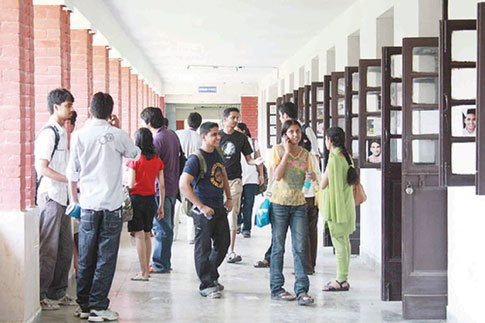Creating more Classrooms and reviving distance education in India

The expression Student Support Services is a very popular one used in IGNOU and it is also very central to its essential philosophy. The main props of Student Support Services are:
- Study Centres
- Academic Counseling and General Counseling to sort out student’s problems
- Laboratory services and practical work
- Teleconferencing and tele-teaching
- Tele-advising; counseling students over telephone
- Pre-entry and post-entry guidance to learners
The support extended to the student in varying degrees such as academic counseling, advising, admission work, library work and distributing study material is the crux. The distance educator in IGNOU achieves such wholesome objectives.
Distance education is higher education, adult and continuing education, certification, professional training are a complicated mix. One simply cannot draw any lines as the student profile ranges from the 20 year to 70-year olds, clearly evinced in the IGNOU experiment. The distance educator must reach out. Distance education in India is the blend of a pragmatic administrator, an educator and a teacher.
One of the endeavours of IGNOU is popularization and publicity. The support extended to the student, prospective or otherwise is enhanced by general publicity and publicity with the help of the media. It makes no shams about marketing education, selling ‘products’ i.e. its courses. Pre-entry counseling and guidance to the prospective student is a very important case in point where the staff may attend to students’ queries and advise them regarding choice of their programmes and courses.
The beauty and flexibility of distance education is that the academic staff has administrative functions to perform and the other round. Roles are not easily defined here and they can be automatically switched. Each of the administrative and academic units, whether it is handling admission work, processing data, receiving students’ fees, dealing with general administration or attending to re-imbursement of fees, is effectively directed towards the student and his well being.
Student Support Services in IGNOU help in creating more avenues and in the final analysis more “classrooms”.
A Complementary (And Diverse) System of Education
Distance education in universities such as IGNOU is not meant to be an alternative mode of education. It is a parallel system to conventional methods bringing about radical changes in evaluation strategies, course development, practical work etc. It complements the conventional and traditional system of education by innovation, at points; where the conventional system has become either too orthodox or rigid.
Continuous evaluation is not stymied; it helps greatly, in the following respects:
- The student is made to work throughout the year.
- There are objective questions/answers which test the student’s aptitude and sense of information
- Short questions/answers do likewise
- Assessment is more objective
- Cramming is not required while appearing for term end examination
IGNOU has stuck to the method of continuous evaluation as an academic practice, and also as a more objective appraisal of students’ performance. Even in the area of practical work IGNOU has made the exercise more informal by conducting it in the form of a contact/extended contact programme. The introduction of seminars in various courses/programmes is in itself innovation in spirit. By evolving supplementary and innovative techniques distance education, in India, catches our imagination and comes to terms with it. What is called tutorial class in say, a college or a university which in turn has become hackneyed, in many instances, is an extended contact programme spread over a few days in IGNOU. Interaction not only with resource persons/academic counselors, but also with peer groups is a must. The emphasis is on learning by doing; not on learning by rote.
In the 21st century, instructional methods and pedagogy are undergoing swift changes, thanks to information technology. IT has changed our daily lives to make communication swifter and easier. Computer aided instruction is a reality, which has left traditional teaching outmoded. The concept of the traditional classroom, with its four walls has been extended and ramified. The IGNOU is an ”University without walls”. The computer has had a multiplier effect on teaching and learning. Let us briefly look at what these effects are on:
- Traditional teaching
- Bridging on campus and off campus realities
- Distance education
- Integrating computer with the radio and the television
- Virtual campuses and universities, and
- Wireless communication as a mode of teaching
Distance learning has found a new expression: flexible learning a term in common usage in countries such like Australia and universities such as the IGNOU have adopted blended learning.






